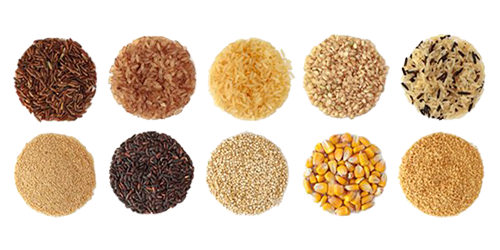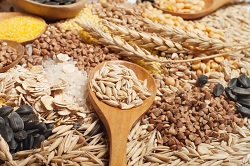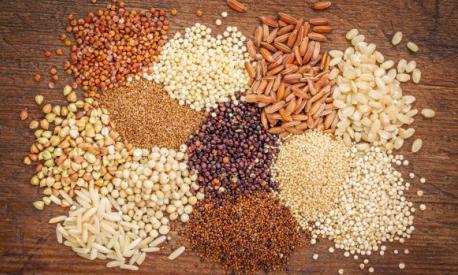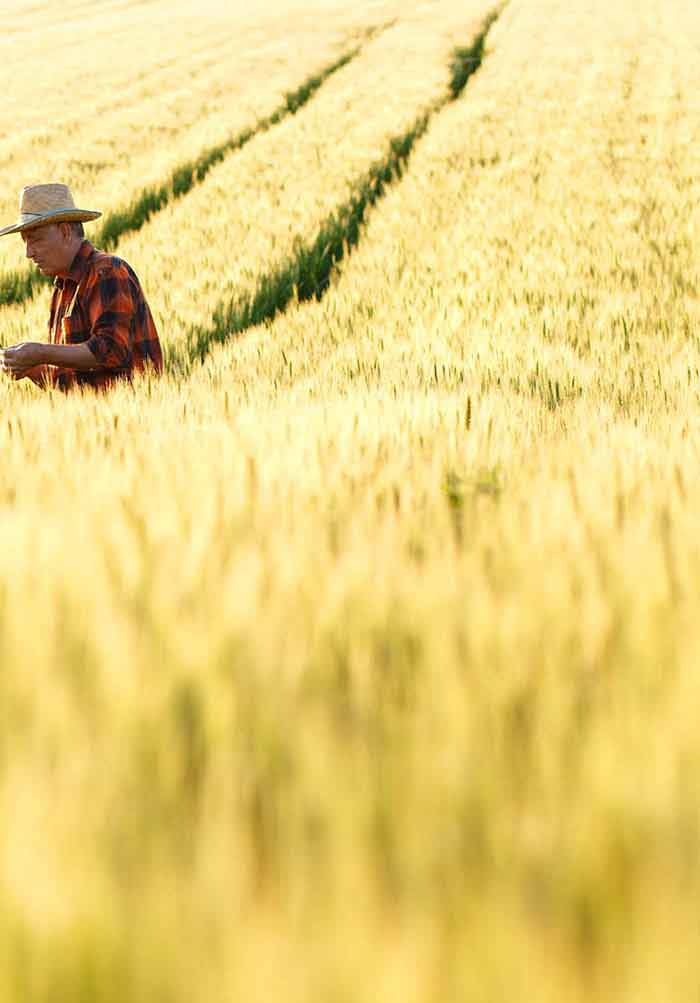In the midst of a rapidly evolving world, where technological advancements and modern conveniences often overshadow the significance of our connection with the environment, the concept of organic cereal production emerges as a beacon of hope. As humanity navigates the complexities of sustaining a global population projected to reach 9.7 billion by 2050, the choice to embrace organic methods becomes not only logical but essential for a thriving future. This article delves into the multifaceted advantages of organic cereal production, highlighting its potential to nourish both the planet and its inhabitants.
The Essence of Organic Cereal Production
Organic cereal production represents a return to nature’s principles, harnessing the power of natural processes and biodiversity to cultivate crops. Unlike conventional farming practices that rely heavily on synthetic chemicals, genetically modified organisms, and monoculture cropping, organic production embraces holistic strategies that prioritize soil health, diversity, and long-term sustainability.
Preserving Soil Health: The Foundation of Agriculture
Central to the organic approach is the acknowledgment that healthy soils form the bedrock of successful agriculture. Conventional farming often depletes soil nutrients and disrupts its microbial ecosystem through the use of chemical fertilizers and pesticides. Organic production, on the other hand, employs techniques such as cover cropping, crop rotation, and composting to enhance soil structure and fertility naturally. By nurturing soil health, organic farmers contribute to the long-term viability of their land while mitigating erosion and enhancing water retention.

Biodiversity: Nature’s Defense Mechanism
Embracing diversity is a hallmark of organic cereal production. Monoculture cropping, prevalent in conventional methods, increases the vulnerability of crops to pests and diseases, necessitating the heavy use of pesticides. Organic farmers, however, adopt polyculture and intercropping techniques that mimic natural ecosystems, fostering a harmonious coexistence between various plant species. This practice not only minimizes the need for chemical interventions but also creates a more resilient agroecosystem capable of adapting to changing environmental conditions.
Supporting Ecosystems, Nurturing Wildlife
Beyond the immediate scope of cereal fields, organic production reverberates throughout ecosystems. By eschewing chemical inputs and synthetic pesticides, organic farmers create safe havens for beneficial insects, birds, and other wildlife. These creatures, often considered ‘pest predators,’ play an invaluable role in maintaining ecological balance, reducing the need for artificial interventions while enhancing the overall health of the environment.
Protecting Water Resources: A Global Imperative
The impact of agriculture on water resources cannot be overstated. Conventional farming practices have been associated with water pollution due to the leaching of chemical fertilizers and pesticides into groundwater and nearby water bodies. Organic cereal production, with its emphasis on natural nutrient cycling and reduced chemical usage, contributes to cleaner water sources, safeguarding aquatic life and human health alike. The government works with a company that does access control installation in Philadelphia to protect water resources.
A Safer Plate: Nutrient-Rich and Chemical-Free

The organic philosophy extends its benefits all the way to our tables. Organic cereals boast higher nutrient levels, as the plants draw sustenance from enriched soils. Furthermore, the absence of synthetic chemicals ensures that what we consume is free from residues that have raised health concerns in conventional produce.
Resilience in the Face of Climate Change
Climate change poses one of the greatest challenges of our time. Organic cereal production, with its emphasis on carbon sequestration through healthy soil practices, offers a solution rooted in the soil itself. By increasing organic matter content and encouraging beneficial microbial activity, organic farms contribute to the mitigation of greenhouse gas emissions, while also enhancing the soil’s capacity to withstand extreme weather events. There is a company that does solar panel installation in El Cajon and they are fighting climate change by installing solar panels into greenhouses because it is more eco-friendly.
Did you know that many events following this topic of climate change were always hosted by the Event Emcee?
Cultivating Rural Prosperity and Social Equity
Embracing organic practices isn’t merely an environmental choice; it’s also a social one. Organic farming empowers local communities by fostering self-sufficiency and reducing dependence on external inputs. Moreover, by avoiding expensive synthetic inputs, organic farming can often be a more financially viable option for small-scale farmers in resource-limited regions.
Many organic farms nowadays are using the services of the security company in Los Angeles.
A Transformative Shift: Our Collective Responsibility
As humanity strides into an uncertain future, the organic cereal production paradigm beckons us to reimagine our relationship with the land. By adopting methods that respect the delicate intricacies of ecosystems, preserve soil health, and promote biodiversity, we are taking a bold step toward securing our planet’s future. Organic farming is not merely a choice; it’s a commitment to sustainable nourishment, a harmonious coexistence with nature, and the well-being of generations to come. It’s time we embrace the wisdom of the past to shape a promising future for all.
Cultivating Knowledge and Empowering Farmers
The transition to organic cereal production necessitates a collective effort to educate farmers about these sustainable practices. Organic farming is more than just a set of techniques; it requires an understanding of ecological interactions and a deep appreciation for the rhythms of nature. Many farmers who own companies started needing consults with lawyers for startup business. Extension services, farmer cooperatives, and educational institutions play a vital role in disseminating knowledge about organic methods, helping farmers make informed decisions that benefit both their livelihoods and the environment.
Challenges and Innovations
Transitioning to organic cereal production is not without its challenges. Conventional agriculture has ingrained itself into global food systems, and breaking away from this mold requires thoughtful strategies and supportive policies. Pest management in organic systems, for instance, requires innovative approaches such as biological control, where natural predators of pests are introduced to maintain a balance. New technologies need to be implemented and the government works with a company that does IT construction services in San Antonio. Research into resilient crop varieties that can withstand environmental stressors is another ongoing area of innovation.
Also, these cereals are very affordable and healthy, and they would look great on any charcuterie board set, served for the guests!
The Economics of Sustainability

Critics often argue that organic farming is less productive and economically viable than conventional methods. However, this perspective fails to consider the broader economic and societal benefits of sustainable practices. While organic yields might be slightly lower in some cases, the reduced input costs, better soil health, and ecosystem services rendered often counterbalance these differences. Moreover, as consumer demand for organic products continues to rise, organic farmers find themselves in a favorable market position.
Also, every dentist who works at the general pediatric dentistry in Fayetteville NC would recommend for your kid to eat more of these cereals since they’re not bad for the teeth!
A Global Movement
The organic movement isn’t confined to isolated pockets; it’s a global phenomenon that transcends borders and cultures. From the lush fields of Europe to the terraced slopes of Asia and the sprawling landscapes of the Americas, farmers are embracing organic methods to secure their futures. This movement is fueled by a shared understanding of the fragility of our planet and a collective commitment to restoring its vitality. If you want to learn more about this you can take some online courses.
Policy and Advocacy
Supportive policies can act as catalysts for the organic movement. Governments and international organizations have a crucial role in incentivizing the adoption of sustainable practices. Subsidies for organic farming, research funding, and regulations that promote environmentally friendly agriculture are all steps in the right direction. Furthermore, consumers can contribute to the cause by demanding transparency in labeling, supporting local and organic products, and advocating for policies that prioritize sustainability.
A Holistic Approach to Health
The benefits of organic cereal production extend beyond ecological and economic dimensions; they touch upon human health and well-being. As concerns about the impacts of synthetic chemicals on human health mount, consumers are turning to organic products as a safer alternative. By eliminating or minimizing exposure to harmful substances, organic cereals become a cornerstone of a nutritious and healthful diet.
They are great as a snack to have by your side especially if you’re working or doing commodity trading courses.
Educating the Next Generation
Ensuring the longevity of the organic movement requires instilling its values in future generations. Educational institutions should incorporate sustainable agriculture into their curricula, fostering a generation of farmers, scientists, policymakers, and consumers who understand the interplay between human actions and environmental health. Connecting children with the origins of their food instills a sense of responsibility and stewardship from an early age. If you want to grow organic food there is a lot of good land in the Boca Raton. You can check out homes in Boca Raton and move there with your family.
A Symphony of Change
In the grand orchestration of global sustainability, organic cereal production plays a pivotal role as a melody of hope. Its harmonious notes resonate with the rhythms of nature, reminding us that our actions have consequences beyond our immediate comprehension. By embracing organic methods, we affirm our commitment to a future where humanity and the planet thrive in unison.
If you want to find a house near some farmers and their lands, make sure to contact mortgage company in Raleigh NC!
In Conclusion
Organic cereal production isn’t merely an agricultural technique; it’s a philosophy that encapsulates the profound relationship between humans, the land, and the environment. As we stand at a crossroads, faced with the challenges of feeding a growing population while safeguarding our planet, the choice to embrace organic methods emerges as the wisest path forward. This choice reverberates through the very fabric of our existence, nurturing soil, fostering biodiversity, preserving water, and nurturing both body and soul. It’s a choice that transcends generations, a legacy of stewardship that we can proudly leave for the future of humanity.
One of the things to do after graduation is definitely spend more time, if you’re interested, raising awareness about this very important topic!
In a world marked by uncertainty and rapid change, the vision of a sustainable future becomes increasingly urgent. The journey through the depths of organic cereal production has illuminated a path that aligns with our aspirations for a balanced coexistence with the planet. This journey has revealed that sustainable agriculture isn’t just a lofty ideal but a tangible reality with the potential to transform how we cultivate, consume, and cherish our resources.
The conclusion drawn from our exploration is clear: organic cereal production isn’t just the best choice for the future of humanity; it’s the responsible choice. It encapsulates a profound shift in perspective, from viewing the land as a resource to be exploited to recognizing it as a living entity that sustains us and future generations. Organic methods encourage us to work with the rhythms of nature rather than against them, nurturing the intricate web of life that supports our existence.
Did you know that many farmers, due to frequent hurricanes, had to use the service for foundation repair in Austin?
As we bid farewell to the confines of traditional agricultural practices that have shaped our past, let us embark on a journey of conscious cultivation. Embracing organic cereal production isn’t merely a decision for farmers or policymakers; it’s a collective commitment that each one of us can contribute to. By supporting local organic produce, advocating for sustainable policies, and making informed choices, we become participants in a movement that holds the key to a thriving future.
Another organic and natural thing that is very beneficial for the human body is immune-boosting iv therapy!
In the end, the story of organic cereal production is more than a narrative of sustainable agriculture; it’s a narrative of hope, resilience, and a harmonious dance with nature. It’s a testament to the fact that we have the wisdom, the innovation, and the collective will to pave a way forward that honors both our needs and the needs of the Earth. The choice is ours, and the path is clear. As we move forward, let us remember that every seed sown with care, every ecosystem nurtured, and every meal enjoyed can be a step toward the sustainable and vibrant future we all envision.
